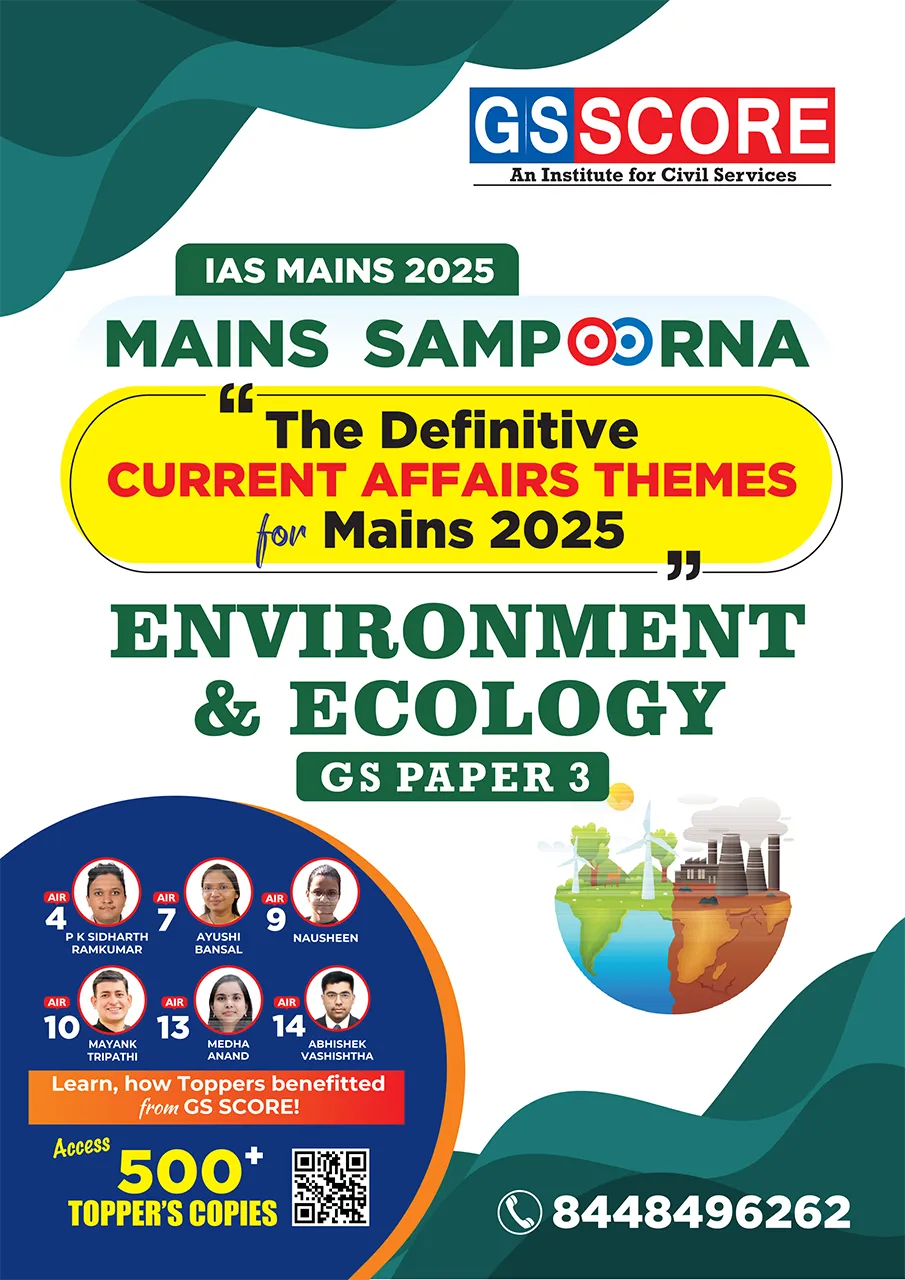


Environmental concerns are central to GS Paper III in IAS Mains 2025, especially as global climate risks, biodiversity threats, and policy debates intensify. The Mains Sampoorna: Contemporary Issues of Environment & Ecology PDF offers a focused compilation of current themes, global frameworks, national policies, and ecological case studies to strengthen your preparation. This resource helps aspirants approach environmental questions with conceptual grounding, updated data, and policy perspectives.
Key Features of the PDF
-
Theme-Wise Compilation: Organised across 10 chapters including Climate Change, Biodiversity, Environmental Governance, Conservation, Pollution, Energy & Resources, Waste Management, and Green Finance.
-
Coverage of Recent Developments: Includes COP28 outcomes, Forest (Conservation) Amendment Act 2023, Extended Producer Responsibility (EPR) compliance, and India’s updated INDCs.
-
Global + Local Policy Integration: Features IPCC synthesis report, Kunming-Montreal Biodiversity Framework, NCAP 2.0, LDN targets, and draft EIA norms.
-
UPSC Question Relevance: Topics such as carbon markets, ecological budget, climate justice, and lifestyle-based mitigation align with recent PYQ trends.
-
Enrichment Tools: Includes case studies (e.g., Assam elephant corridors, Delhi AQI, Ladakh nomadic resilience), schemes (LiFE Mission, Green Credit), and mapped answer cues.
How to Utilise This Book
-
Link with GS Paper III Syllabus: Use the structure to revise climate action, conservation efforts, and pollution control comprehensively.
-
Incorporate in Answers: Use policy names, targets (e.g., net zero by 2070), and international references for strong substantiation.
-
Support Ethics & Essay Papers: Issues of intergenerational equity, sustainable development, and community resilience offer cross-paper insights.
-
Build a Case Repository: Extract region-specific illustrations and ecological success stories for direct use in answers.
-
Bridge Concepts and Current Affairs: Apply principles like carrying capacity, resilience, circular economy, and climate finance to live examples.
Mains Sampoorna – Environment & Ecology equips aspirants with a robust framework to address complex environmental challenges through an updated, analytical lens for IAS Mains 2025.
Related Articles


